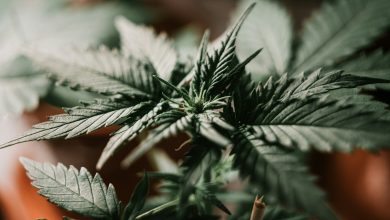
Uber Eats has added cannabis as a category for its customers in Ontario, Canada. As well as ordering food, from 29 November 2021 cannabis users will be able to peruse the menu offered by Tokyo Smoke. However, this is a collection only service. Cannabis will not be delivered to people’s homes, for the moment. With over 50 Tokyo Smoke stores in the province, customers shouldn’t have far to go to pick up their pot.
Uber sees this as a pilot scheme on a fairly small scale, but it is significant as it represents the entry of a major international company into the legal cannabis market. Experts believe Uber will use this pilot as an experiment, making lots of adjustments to the setup, while they wait to enter the potentially giant US market.
The move became a possibility when Canada legalised marijuana in 2018. It is legal nationally, but the Uber Eats option is only available in Ontario. It will enable the company to test and modify its online ordering and payment option in this new sector.
Supporters welcome the move as it shows that a mainstream company has confidence in the cannabis industry. It means that cannabis as a legal product has staked a claim and won’t be disappearing. The Canadian cannabis market is thought to be worth $4 billion, so it’s no surprise it’s attracted a major business such as Uber. However, all eyes are on the prized US market, which is on track for sales of $25 billion.
All eyes on the US prize
Uber will have to wait to enter the US market until federal laws change. The company clearly has its sights set on other countries. An Uber spokesperson, speaking to Reuters, said, “We will continue to watch regulations and opportunities closely market by market. And as local and federal laws evolve, we will explore opportunities with merchants who operate in other regions”.
Uber has been involved in the cannabis market for some time. In 2014, it encouraged American drivers who might fall foul of drug-driving laws to call an Uber instead. When passengers entered a code, Uber would donate $5 to multiple sclerosis research, which is actively looking into medicinal cannabis. It might have been a great PR stunt, but everyone wins as the drivers stay safe, and research gets a boost.
Industry experts think that the probable intended move into the American cannabis market could look completely different from the one planned for Canada. Uber’s main focus is on delivery and the driver network, but it could face difficulties in the US. In states where medical cannabis is legal, deliveries can only be made by licensed dispensaries. Certain marijuana delivery firms become licensed in order to operate. To enter into and then compete in the market, Uber would need dispensary licences for its operation or its drivers.
It’s more likely that Uber will make this move via acquisition. It acquired Boston-based alcohol delivery company Drizly early in 2021. This on-demand alcohol supplier operates in 1600 US cities and complies with all the relevant regulations. This expansion could signal similar partnerships for cannabis deliveries once the legal hurdles are cleared. The use of medical marijuana by adults is now legal in 36 US states, but under federal law (governing the whole country) it remains illegal.
Uber CEO, Dara Khosrowshahi, told CNBC in April that it planned to enter the US market but was waiting for federal legalisation. “When the road is clear for cannabis, when federal laws come into play, we’re absolutely going to take a look at it,” he said.
You may also like to read: Medical Cannabis UK Guide




